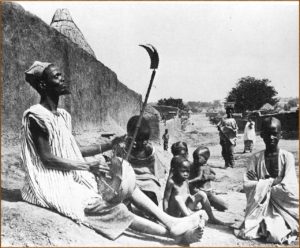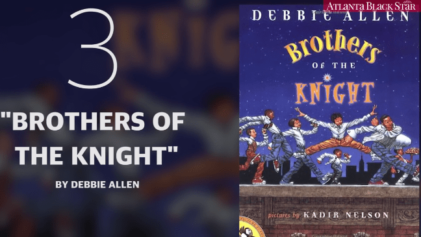
According to a new study from the Frank Porter Graham Child Development Institute at the University of North Carolina at Chapel Hill, early narrative skills are tied to kindergarten literacy among young African-American children. The research is the first to show the connection between the storytelling abilities of Black children and their early reading development.
“Previous research found an association between oral narratives and literacy at later stages of development,” said Graham Child Development Institute researcher Nicole Gardner-Neblett, who led the nationwide study of 6,150 children. “But our findings suggest how important storytelling is for African American children at the earliest stages.”
According to Gardner-Neblett, oral narrative skills emerge as early as age two, and further develop as children interact with parents and others who give guidance and feedback. While experts have suggested a link existed between oral language skills and preschool literacy, most prior research had centered on the link between early language and outcomes later in elementary school.
Interestingly, the relationship between oral narrative skills and literacy did not apply to the entire study, but only to one group of children.
“We found that preschool oral narrative skills were a significant predictor of emergent literacy for poor and non-poor African-American kindergartners,” Gardner-Neblett said, “but only for the African- American children.”
heoma Iruka, director of research and evaluation at the Buffett Early Childhood Institute suggests the findings have a historical precedent.
“Oral storytelling has been an important part of the histories of many peoples — and an especially rich aspect of the Black culture across the African diaspora,” she explains.
African culture is replete with a rich oral history that was passed down for ages, making it one of the few peoples whose history is more oral than written. The griot is the storyteller, the musician and the historian who transmits the messages of countless generations who have come before, the documentarian who preserves and disseminates centuries of historical information and genealogy.
The slave ships and dungeons, the cotton fields and sugarcane plantations could not destroy the ancient DNA of African history, as the call and response tradition of the griots was retained throughout the African diaspora. The legacy of the griots continued through the folktales and music of the Caribbean, the traditions of the African-American church, the Gullah-Geechee culture of the South Carolina Lowcountry and sea islands and the Afro-Brazilian storytelling tradition.
“The griots are our guides on the journey,” Eulalia Bernard, an Afro-Costa Rican woman writer and Latin American griot wrote. “If we lose them, we experience great loss and suffering, becoming non-dialectical and non-dialectic.”
According to Gardner-Neblett, previous studies also suggest that Black children are skilled in telling complex stories.
“Having a repertoire of different styles suggests that African-American children are flexible in their narratives, varying the narratives according to context,” she said. “This flexibility may benefit African-American children as they transition from using oral language to the decoding and comprehension of written text.”
The authors of the study said that capitalizing on the storytelling skills of Black children is important in assisting them with their early reading development.
“Building on children’s oral narrative skills is a strategy for schools looking to connect with children,” said Iruka, “especially as schools support children of color who come from a culture that has cherished these skills.”
Sankofa is Akan word from Ghana, which means “go back to the past and recover it,” “return to the source,” or “we must go back and reclaim our past so we can move forward; so we understand why and how we came to be who we are today.” If people of African descent want our children to succeed in literacy, we must go back to the past, to the ways of the griot.



